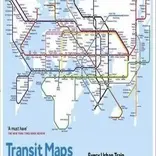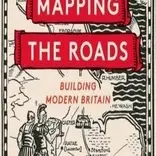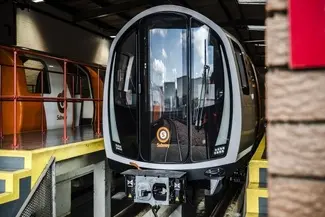|
Code:
69272
|
Eurostar sold off despite ministers believing its value would rise

TIN news: Britain’s stake in Eurostar was sold for £757m even though the government believed its value would rise, because ministers wanted to offload the state’s share in the cross-Channel train service before the general election, a report has concluded.
The report by the National Audit Office into the sale, published on Friday, found that taxpayers had invested four times more in Eurostar, approximately £3bn, than the sum recouped from the sale in March.
Dividend payments to the government over the next 10 years were forecast to exceed £700m, almost matching the amount paid for Britain’s 40% Eurostar stake and preference share.
The NAO said it regarded the sale process as effective and “value for money”, but the chair of the public accounts committee accused ministers of pursuing short-term cash rather than long-term value.
The government put Britain’s stake in Eurostar, which it had owned jointly with the French and Belgian governments since services began in 1994, up for sale last autumn. George Osborne described the eventual sale as a “fantastic deal for UK taxpayers that exceeds expectations”.
But the NAO report showed that Eurostar’s profits were forecast to increase significantly from 2016, when new, higher-capacity trains will be brought into service. Although the government thought higher profits could increase the price tag, it decided to sell to avoid uncertainty and risks. However, the timing was “primarily driven by the desire to sell prior to the 2015 general election”, said the NAO.
The report by the National Audit Office into the sale, published on Friday, found that taxpayers had invested four times more in Eurostar, approximately £3bn, than the sum recouped from the sale in March.
Dividend payments to the government over the next 10 years were forecast to exceed £700m, almost matching the amount paid for Britain’s 40% Eurostar stake and preference share.
The NAO said it regarded the sale process as effective and “value for money”, but the chair of the public accounts committee accused ministers of pursuing short-term cash rather than long-term value.
The government put Britain’s stake in Eurostar, which it had owned jointly with the French and Belgian governments since services began in 1994, up for sale last autumn. George Osborne described the eventual sale as a “fantastic deal for UK taxpayers that exceeds expectations”.
But the NAO report showed that Eurostar’s profits were forecast to increase significantly from 2016, when new, higher-capacity trains will be brought into service. Although the government thought higher profits could increase the price tag, it decided to sell to avoid uncertainty and risks. However, the timing was “primarily driven by the desire to sell prior to the 2015 general election”, said the NAO.
Eurostar sold off despite ministers believing its value would rise – report
Amyas Morse, the auditor general of the NAO, said: “The government prepared well for the sale of Eurostar and the sale process was run effectively. I regard the sale as value for money.”
But he said there were lessons for the government as it starts to sell off £62bn of national assets, including the need for a detailed business case and to get objective and robust valuations from advisers. The NAO said paid consultants were shown other valuations before carrying out supposedly independent assessments of Eurostar.
A Treasury spokesperson said the NAO had confirmed that the sale delivered a good deal for British taxpayers with a process that was well run and effective. “Getting the best value for money for the taxpayer and tackling our country’s debts so our country lives within its means are key parts of our long-term plan, and as this report shows, the government is delivering on these objectives,” they said.
But he said there were lessons for the government as it starts to sell off £62bn of national assets, including the need for a detailed business case and to get objective and robust valuations from advisers. The NAO said paid consultants were shown other valuations before carrying out supposedly independent assessments of Eurostar.
A Treasury spokesperson said the NAO had confirmed that the sale delivered a good deal for British taxpayers with a process that was well run and effective. “Getting the best value for money for the taxpayer and tackling our country’s debts so our country lives within its means are key parts of our long-term plan, and as this report shows, the government is delivering on these objectives,” they said.
No, Mr Osborne, selling our stake in Eurostar is not securing Britain’s future
Labour said the NAO report showed the public purse had “suffered a considerable net loss”. Lilian Greenwood, the shadow transport secretary, said it was unacceptable the decision to sell was driven by the election and that taxpayers would never recoup their £3bn investment. “Just like with East Coast, the privatisation of a successful publicly owned rail operator was prioritised. We need a new approach to the railways which puts passengers first, and leaves the Tories’ ideological opposition to public ownership behind,” she said.
Mick Cash, the general secretary of the RMT said: “However you dress it up, the fire sale of the UK’s Eurostar stake before the election has cost the taxpayer billions in wasted investment and lost future profits.”
The public accounts committee will hold a hearing into the sale later this month.















![AIRBUS A380 [MORE THAN 600 PASSENGER’S CAPACITY PLANE]](https://cdn.tinn.ir/thumbnail/4jCp4EQvCU0b/IjHVrSYQrIAqIzXuTzADR7qLYX4idQT4nfq__26E5SCUPLMqfhWkWajvuO9Wfq1ql1TjV4dhkrHliNQU82kMpo2NNftT_NGEwHc9KXtN_rk731bmifa2IQ,,/airbus-a380-structure1.jpg)

Send Comment